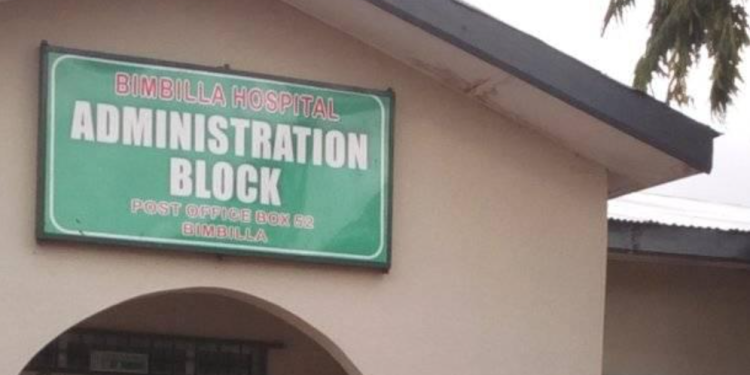
Some youth in Bimbilla, located in the Nanumba North municipality in the Northern region, stormed the premises of the Bimbilla Hospital on Saturday morning, demanding the removal of the Medical Superintendent.
The youth accused the Superintendent of maladministration and negligence, particularly regarding the prolonged water crisis plaguing the hospital.
For the past six months, the Bimbilla Hospital has been grappling with a critical water shortage, severely impacting healthcare delivery in the area.
The lack of water has led to disruptions in hospital activities, with an ongoing Nurses’ strike further exacerbating the situation. The dedicated nurses are protesting against the unavailability of water, expressing concerns about the risk of infections and their ability to carry out their duties effectively.
The water supply to the hospital was disconnected due to non-payment of bills, accumulating to an excess of two hundred and forty thousand Ghana cedis over the months.
As a result, patients seeking medical attention are either turned away or redirected to other hospitals in Yendi or nearby private facilities.
Fueled by their frustration and concerns for their community’s well-being, the youth mobilized at the hospital premises, demanding not only the removal of the medical Superintendent but also the dismissal of other front-line administrators deemed responsible for the ongoing crisis.
A youth organizer representing the NPP in the constituency has appealed to the government to intervene urgently, fearing that the situation could escalate and negatively impact the NPP administration.
In response to the mounting pressure, the Medical Superintendent of the Bimbilla Hospital, Dr. Barhama Adam, assured the public that plans are underway to settle the outstanding water bills. He urged the youth to exercise patience as they work towards resolving the issue.
Meanwhile, the hospital has been engaged in renovation works on its wards in recent weeks, raising questions from the concerned youth about the prioritization of resources.
They wonder whether the funds allocated for renovation could be redirected to settle the water debt, alleviating the crisis and restoring the hospital’s essential services.
Content by: Mohammed Aminu M. Alabira




